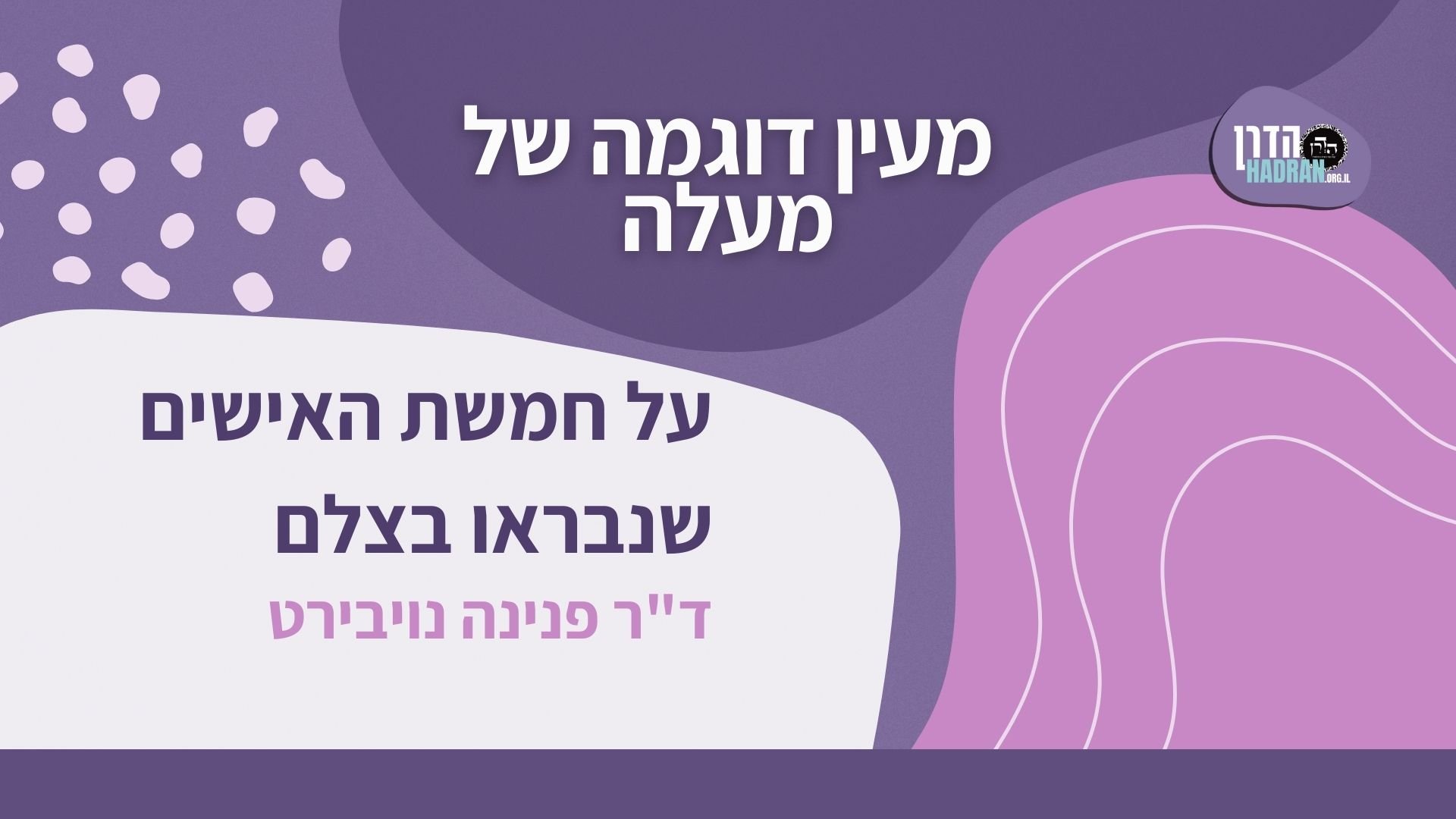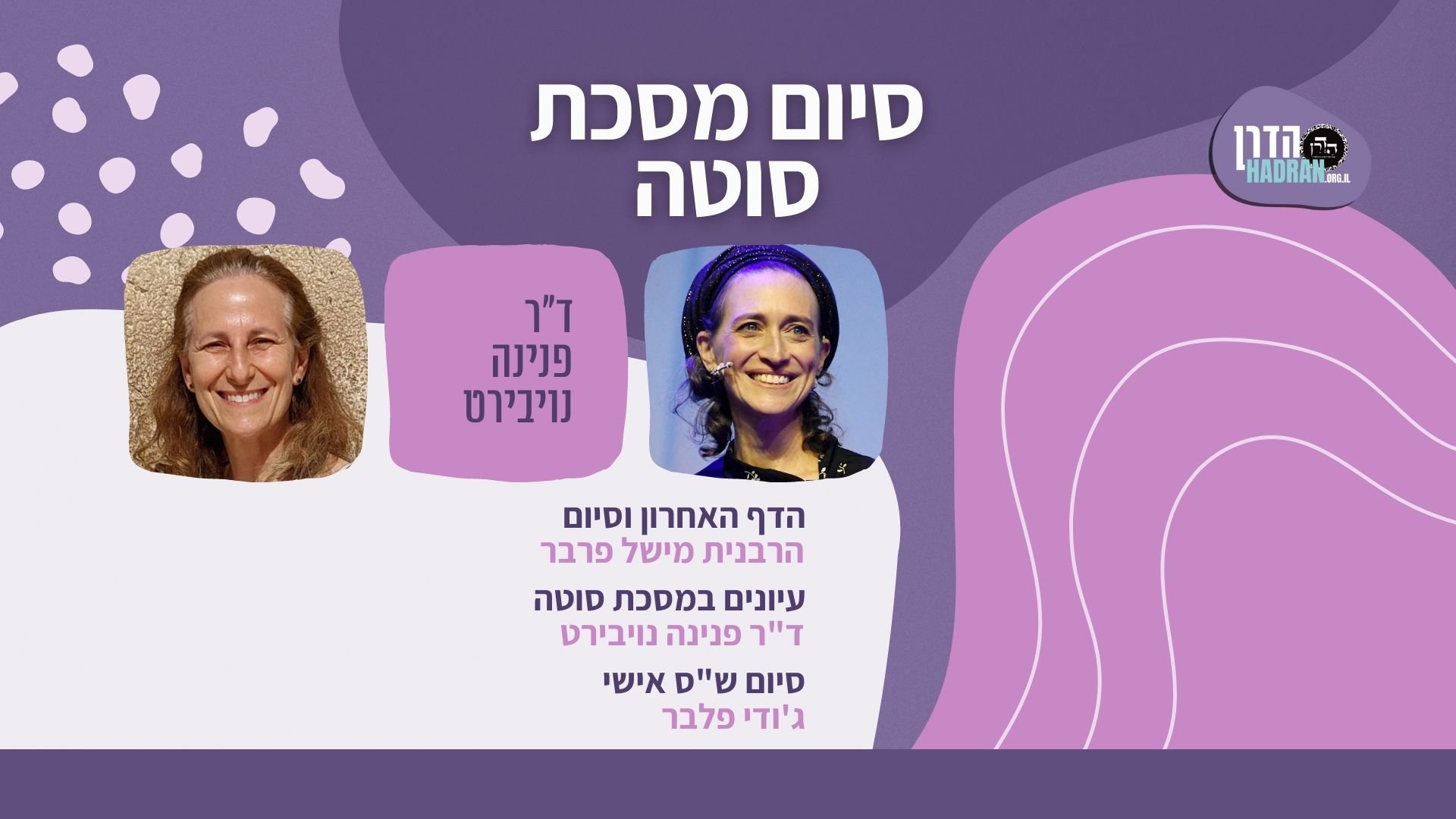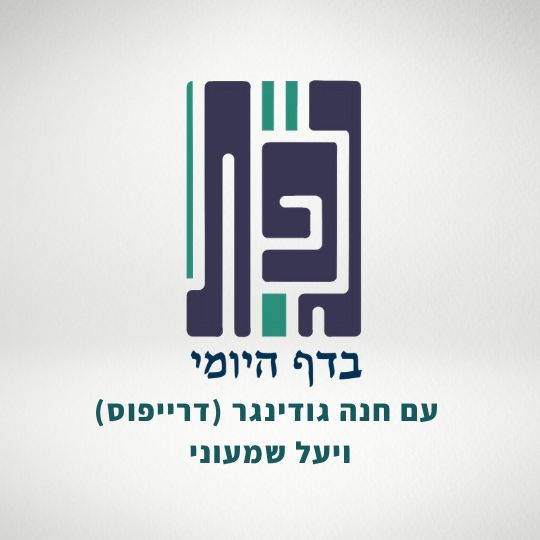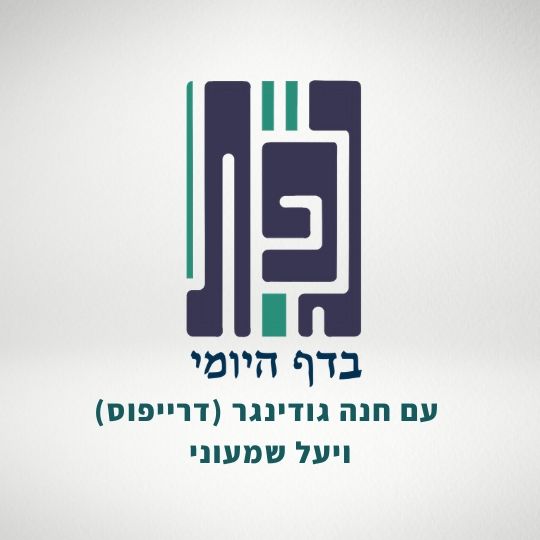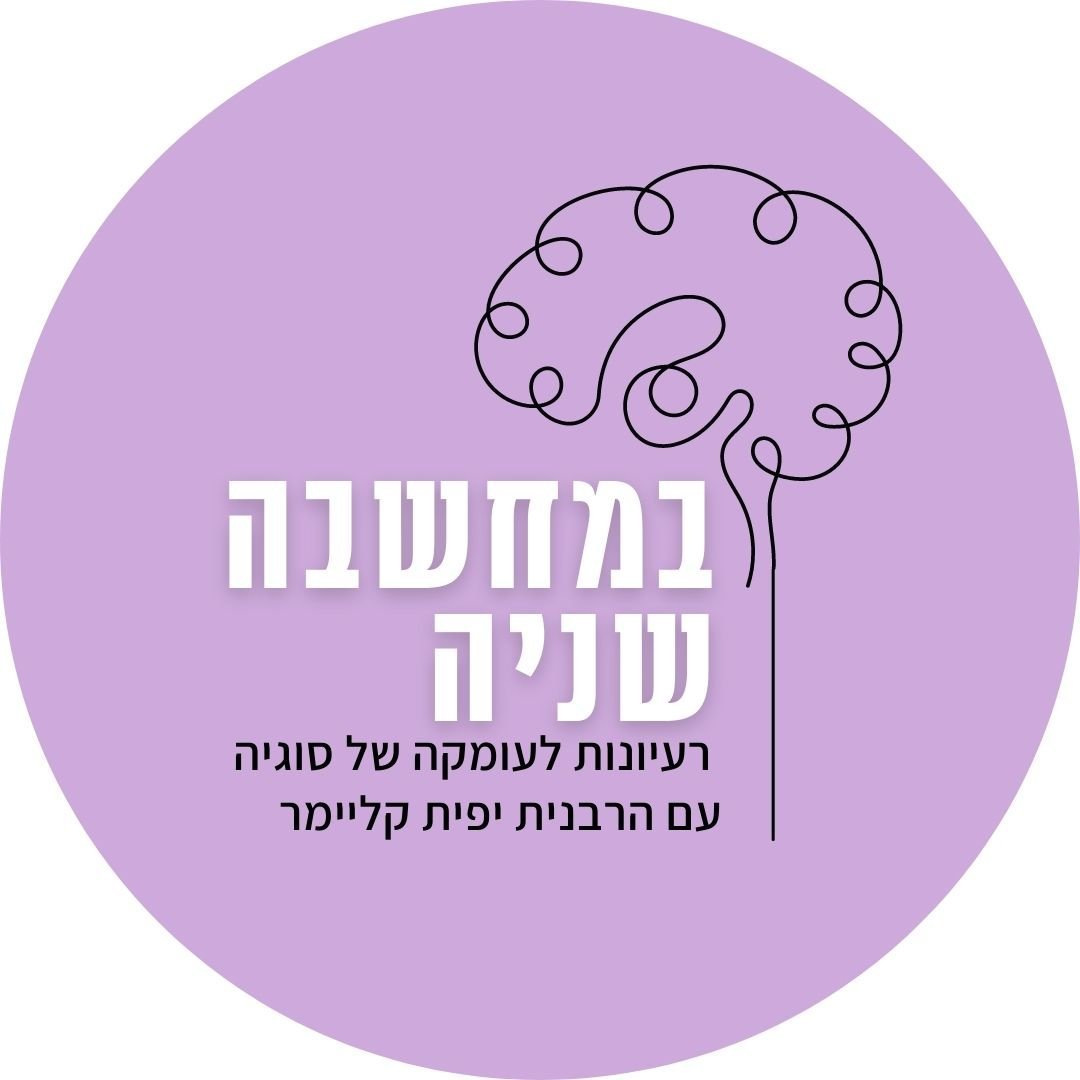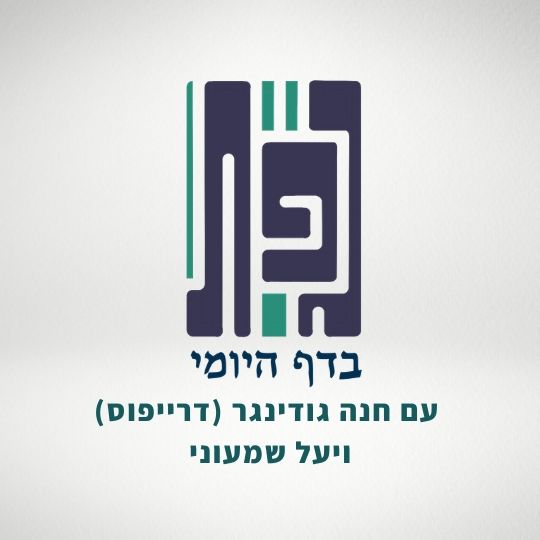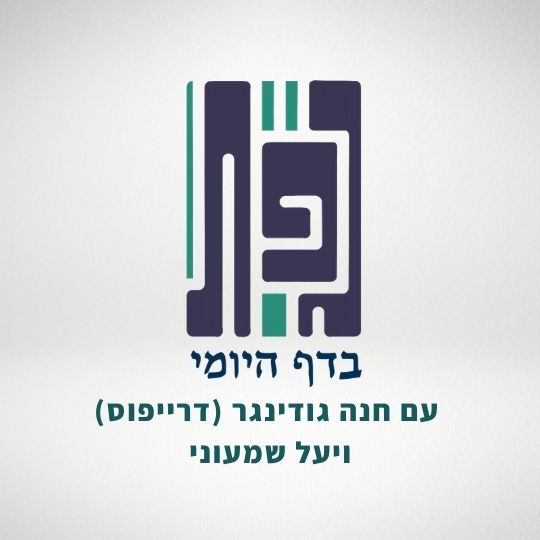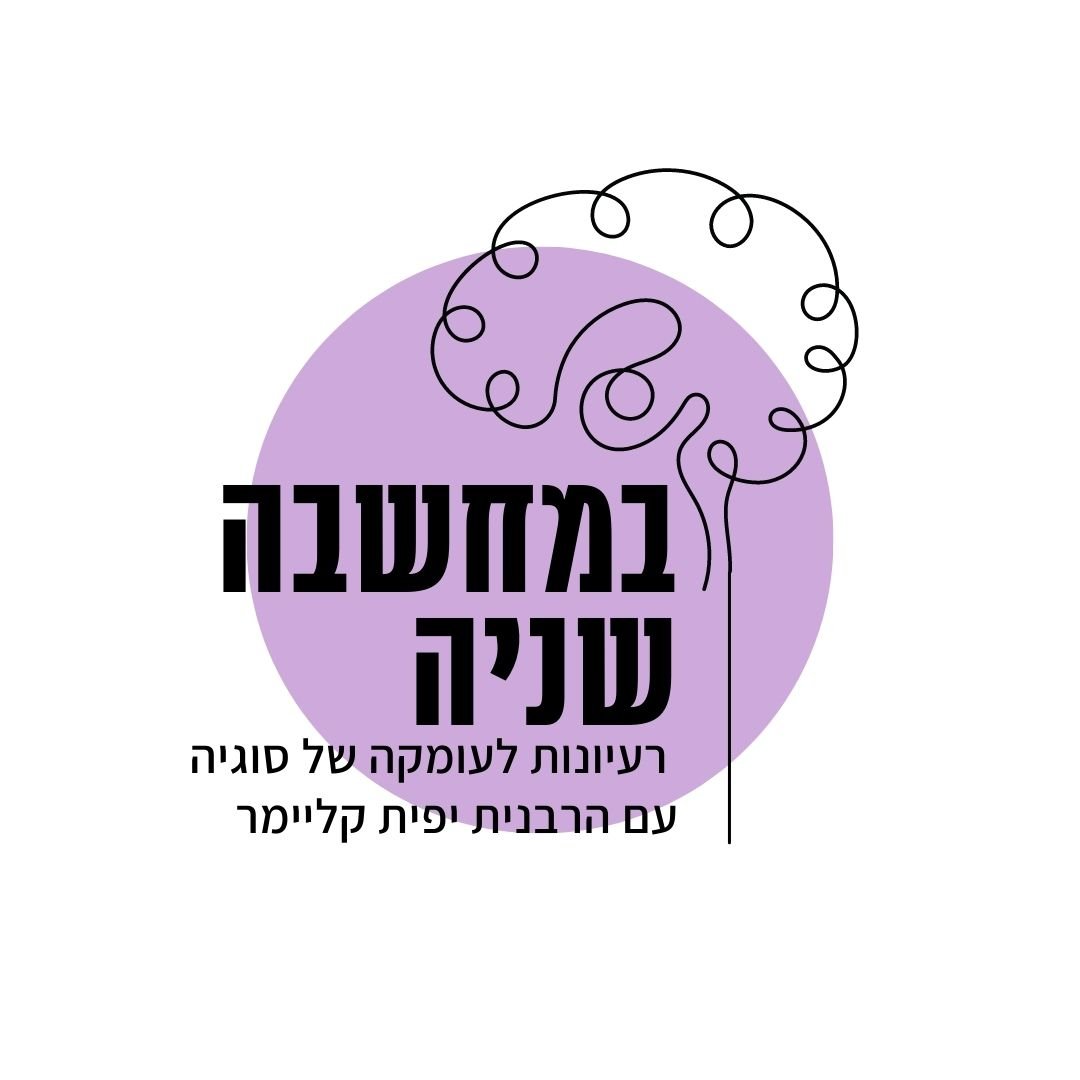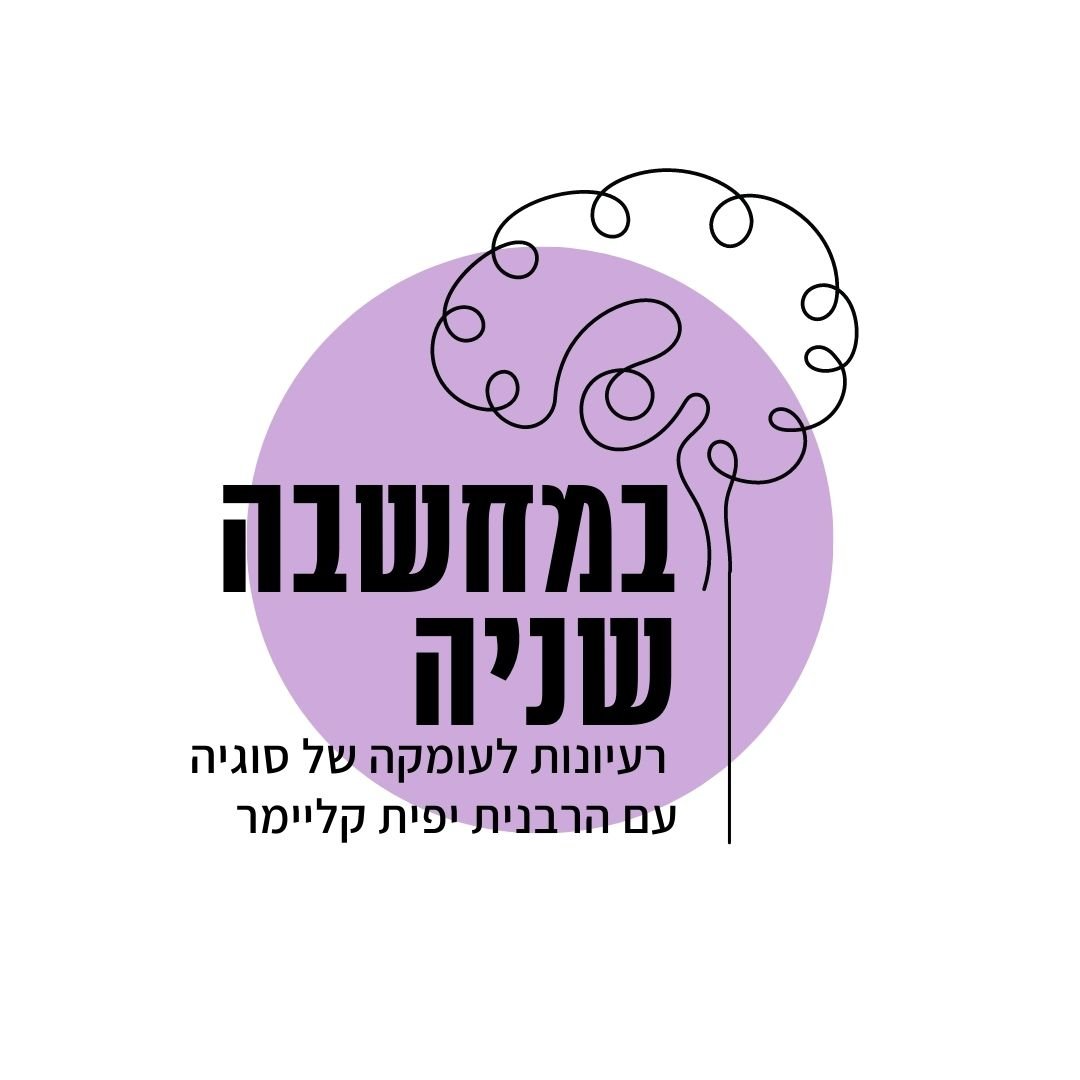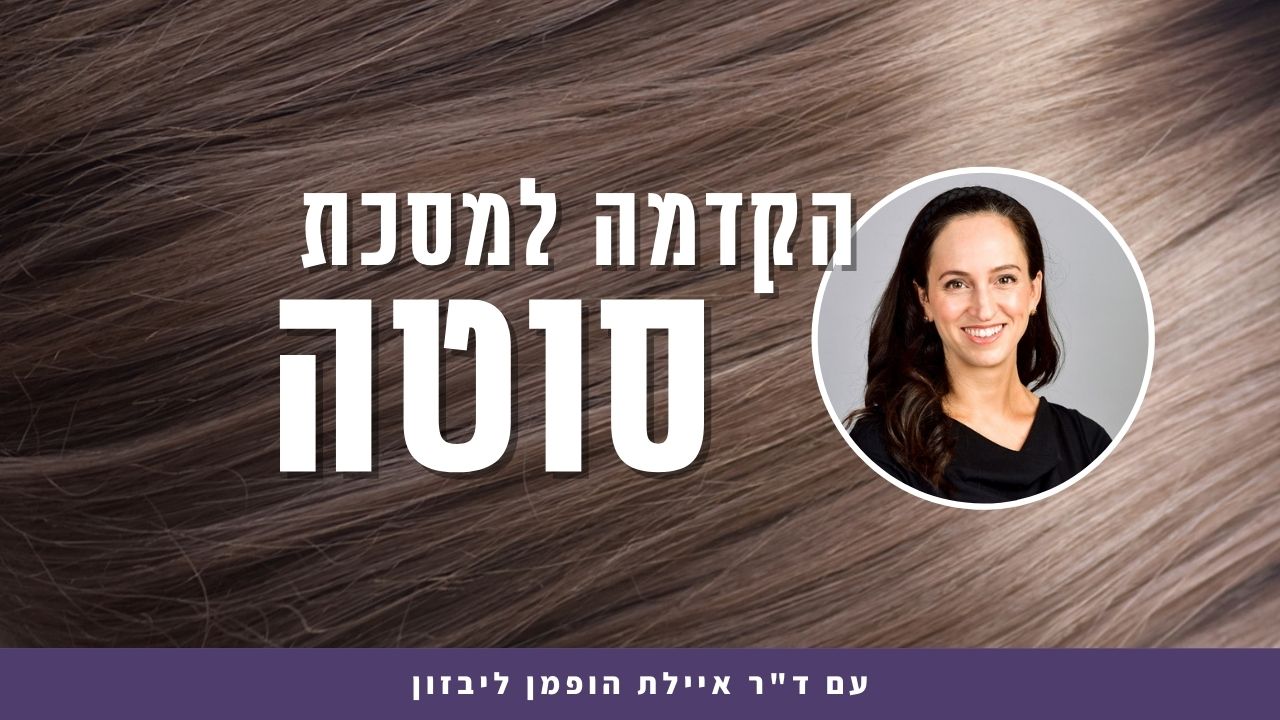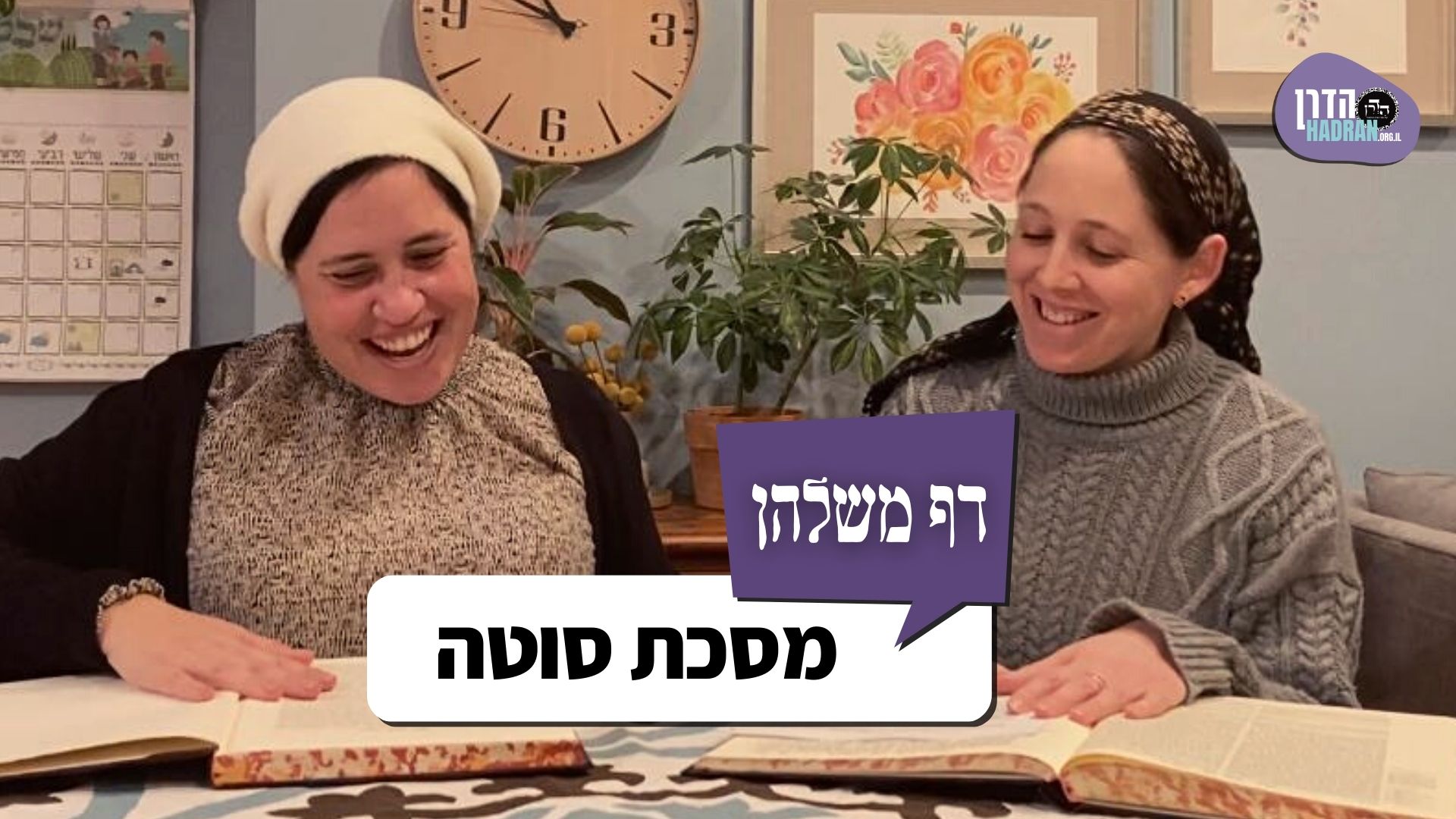סוטה לג
כׇּל הַתּוֹרָה בְּכׇל לָשׁוֹן נֶאֶמְרָה, דְּאִי סָלְקָא דַּעְתָּךְ בִּלְשׁוֹן הַקּוֹדֶשׁ נֶאֶמְרָה, ״וְהָיוּ״ דִּכְתַב רַחֲמָנָא, לְמָה לִי?
that the entire Torah may be recited in any language, as, if it should enter your mind to say that the entire Torah may be recited only in the sacred tongue and not in any other language, why do I need that which the Merciful One writes: “And these words, which I command you this day, will be”? If in fact it is prohibited for one to recite any portion of the Torah in a language other than Hebrew, then prohibiting the recitation of Shema in a language other than Hebrew is superfluous. Since the Torah specifically requires Shema to be recited in Hebrew, it must be because the rest of the Torah may be recited in any language.
אִיצְטְרִיךְ, מִשּׁוּם דִּכְתִיב ״שְׁמַע״.
The Gemara rejects this suggestion: This is not unquestionably so, as the phrase “and these words, which I command you this day, will be” is necessary in this case because “hear” is also written. Had it not said “and these words, which I command you this day, will be,” it would have been derived from the word “hear” that Shema may be recited in any language, in accordance with the opinion of the Rabbis. Therefore, the phrase “and these words, which I command you this day, will be” is necessary.
לֵימָא קָסָבְרִי רַבָּנַן כׇּל הַתּוֹרָה כּוּלָּהּ בִּלְשׁוֹן קוֹדֶשׁ נֶאֶמְרָה, דְּאִי סָלְקָא דַּעְתָּךְ בְּכׇל לָשׁוֹן — ״שְׁמַע״ דִּכְתַב רַחֲמָנָא לְמָה לִי?
The Gemara asks: Shall we say that the Rabbis hold that the entire Torah may be recited only in the sacred tongue and not in any other language? As, if it should enter your mind to say that the Torah may be recited in any language, why do I need that which the Merciful One writes: “Hear”? It is permitted for one to recite the entire Torah in any language, rendering a specific requirement with regard to Shema superfluous.
אִיצְטְרִיךְ, מִשּׁוּם דִּכְתִיב ״וְהָיוּ״.
The Gemara rejects this: The word “hear” is necessary in any case, because “and these words, which I command you this day, will be” is also written. Had it not been for the word “hear,” the Rabbis would have understood that it is prohibited to recite Shema in any other language, in accordance with the opinion of Rabbi Yehuda HaNasi. Therefore, the word “hear” is necessary.
תְּפִלָּה: רַחֲמֵי הִיא, כׇּל הֵיכִי דְּבָעֵי מְצַלֵּי.
§ It is stated in the mishna that the Amida prayer may be recited in any language. The reason for this is that since prayer is a request for divine mercy, one may pray in any way that one desires.
וּתְפִלָּה בְּכׇל לָשׁוֹן? וְהָאָמַר רַב יְהוּדָה: לְעוֹלָם אַל יִשְׁאַל אָדָם צְרָכָיו בִּלְשׁוֹן אֲרָמִית, דְּאָמַר רַבִּי יוֹחָנָן: כׇּל הַשּׁוֹאֵל צְרָכָיו בִּלְשׁוֹן אֲרַמִּי — אֵין מַלְאֲכֵי הַשָּׁרֵת נִזְקָקִין לוֹ, לְפִי שֶׁאֵין מַלְאֲכֵי הַשָּׁרֵת מַכִּירִין בִּלְשׁוֹן אֲרַמִּי!
The Gemara asks: But may prayer really be recited in any language? But didn’t Rav Yehuda say: A person should never request in the Aramaic language that his needs be met, as Rabbi Yoḥanan said that with regard to anyone who requests in the Aramaic language that his needs be met, the ministering angels do not attend to him, as the ministering angels are not familiar [makkirin] with the Aramaic language?
לָא קַשְׁיָא: הָא — בְּיָחִיד, הָא — בְּצִבּוּר.
The Gemara answers: This is not difficult, as that statement of Rabbi Yoḥanan is referring to the prayer of an individual, who needs the support of the angels, whereas this statement of the mishna is referring to communal prayer.
וְאֵין מַלְאֲכֵי הַשָּׁרֵת מַכִּירִין בִּלְשׁוֹן אֲרַמִּי? וְהָתַנְיָא: יוֹחָנָן כֹּהֵן גָּדוֹל שָׁמַע בַּת קוֹל מִבֵּית קֹדֶשׁ הַקֳּדָשִׁים שֶׁהוּא אוֹמֵר: נְצַחוּ טָלַיָּא דַּאֲזַלוּ לַאֲגָחָא קְרָבָא לְאַנְטוֹכְיָא. וְשׁוּב מַעֲשֶׂה בְּשִׁמְעוֹן הַצַּדִּיק שֶׁשָּׁמַע בַּת קוֹל מִבֵּית קֹדֶשׁ הַקֳּדָשִׁים שֶׁהוּא אוֹמֵר: בְּטֵילַת עֲבִידְתָּא דַּאֲמַר שָׂנְאָה לְאַיְיתָאָה עַל הֵיכְלָא וְנֶהֱרַג גַּסְקַלְגָּס וּבָטְלוּ גְּזֵירוֹתָיו. וְכָתְבוּ אוֹתָהּ שָׁעָה, וְכִיוְּונוּ. וּבְלָשׁוֹן אֲרַמִּי הָיָה אוֹמֵר!
The Gemara asks: And are the ministering angels not familiar with the Aramaic language? But isn’t it taught in a baraita (Tosefta 13:5): Yoḥanan the High Priest heard a Divine Voice emerging from the House of the Holy of Holies that was saying: The youth who went to wage war in Antokhya have been victorious. And there was another incident involving Shimon HaTzaddik, who heard a Divine Voice emerging from the House of the Holy of Holies that was saying: The decree that the enemy intended to bring against the Temple is annulled, and Gaskalgas, Caligula, has been killed and his decrees have been voided. And people wrote down that time that the Divine Voice was heard, and later found that it matched exactly the moment that Caligula was killed. The Gemara concludes: And this Divine Voice was speaking in the Aramaic language.
אִי בָּעֵית אֵימָא: בַּת קוֹל שָׁאנֵי, דִּלְאַשְׁמוֹעֵי עֲבִידָא. וְאִי בָּעֵית אֵימָא: גַּבְרִיאֵל הֲוָה. דְּאָמַר מָר: בָּא גַּבְרִיאֵל וְלִימְּדוֹ שִׁבְעִים לָשׁוֹן.
The Gemara answers: If you wish, say that the Divine Voice is different, as its purpose is to communicate a message, and therefore it also communicates in Aramaic. And if you wish, say instead that it was the angel Gabriel, as the Master said with regard to Joseph: Gabriel came and taught him seventy languages, as he knows all of the languages, as opposed to the other angels, who do not.
בִּרְכַּת הַמָּזוֹן — דִּכְתִיב: ״וְאָכַלְתָּ וְשָׂבָעְתָּ וּבֵרַכְתָּ אֶת ה׳ אֱלֹהֶיךָ״ — בְּכׇל לָשׁוֹן שֶׁאַתָּה מְבָרֵךְ.
§ It is stated in the mishna that Grace after Meals may be recited in any language. As it is written: “And you shall eat, and be satisfied, and bless the Lord your God” (Deuteronomy 8:10). The word “bless” is homiletically interpreted to mean: In any language that you bless.
שְׁבוּעַת הָעֵדוּת — דִּכְתִיב: ״וְנֶפֶשׁ כִּי תֶחֱטָא וְשָׁמְעָה קוֹל אָלָה״ — בְּכׇל לָשׁוֹן שֶׁהִיא שׁוֹמַעַת.
It is stated in the mishna that an oath of testimony may be said in any language, as it is written: “And if anyone sins, in that he heard the voice of adjuration” (Leviticus 5:1). The emphasis on hearing in the verse is interpreted to mean that it can be recited in any language that a person hears, i.e., understands.
שְׁבוּעַת הַפִּקָּדוֹן — אָתְיָא ״תֶּחְטָא״ ״תֶּחְטָא״ מִשְּׁבוּעַת הָעֵדוּת.
It is stated in the mishna that an oath on a deposit may be taken in any language. This is derived by means of a verbal analogy from the word “sins” (Leviticus 5:21) that appears in the portion of an oath on a deposit, and the word “sins” (Leviticus 5:1) that is mentioned in the portion of an oath of testimony.
וְאֵלּוּ נֶאֱמָרִין בִּלְשׁוֹן הַקּוֹדֶשׁ: מִקְרָא בִּיכּוּרִים וַחֲלִיצָה כּוּ׳, עַד מִקְרָא בִּיכּוּרִים כֵּיצַד ״וְעָנִיתָ וְאָמַרְתָּ לִפְנֵי ה׳ אֱלֹהֶיךָ״, וּלְהַלָּן הוּא אוֹמֵר ״וְעָנוּ הַלְוִיִּם וְאָמְרוּ אֶל כׇּל אִישׁ יִשְׂרָאֵל״, מָה ״עֲנִיָּיה״ הָאֲמוּרָה לְהַלָּן בִּלְשׁוֹן הַקּוֹדֶשׁ — אַף כָּאן בִּלְשׁוֹן הַקּוֹדֶשׁ.
§ It is stated in the mishna: And these are recited only in the sacred tongue: The recitation of the verses that one recounts when bringing the first fruits to the Temple; and ḥalitza… How is it derived that the recitation when bringing the first fruits is recited specifically in Hebrew? When the Torah discusses this mitzva it states: “And you shall speak and say before the Lord your God” (Deuteronomy 26:5), and below, in the discussion of the blessings and curses, it states: “And the Levites shall speak and say to all the men of Israel” (Deuteronomy 27:14). Just as there, in the portion of the Levites, they speak in the sacred tongue, so too here, in the portion of the first fruits, the recitation is in the sacred tongue.
וּלְוִיִּם גּוּפַיְיהוּ מְנָלַן? אָתְיָא ״קוֹל״ ״קוֹל״ מִמֹּשֶׁה. כְּתִיב הָכָא ״קוֹל רָם״, וּכְתִיב הָתָם: ״מֹשֶׁה יְדַבֵּר וְהָאֱלֹהִים יַעֲנֶנּוּ בְקוֹל״, מָה לְהַלָּן בִּלְשׁוֹן הַקּוֹדֶשׁ, אַף כָּאן בִּלְשׁוֹן הַקּוֹדֶשׁ.
The Gemara asks: And from where do we derive that the Levites themselves answered in Hebrew? The Gemara answers: It is derived from a verbal analogy between the word “voice” that appears here, in the portion of the blessings and curses, and the word “voice” in the verse that relates to Moses. It is written here: “With a loud voice” (Deuteronomy 27:14), and it is written there: “Moses spoke, and God answered him by a voice” (Exodus 19:19). Just as there, the Ten Commandments were stated in the sacred tongue, so too here, the Levites spoke in the sacred tongue.
חֲלִיצָה כֵּיצַד וְכוּ׳. וְרַבָּנַן, הַאי ״כָּכָה״ מַאי עָבְדִי לֵיהּ? מִיבְּעֵי לְהוּ, לְדָבָר שֶׁהוּא מַעֲשֶׂה מְעַכֵּב.
It is stated in the mishna: How is it derived that the recitation at a ḥalitza ceremony must be in Hebrew? The verse states: “And she shall speak and say: So shall it be done to the man that doth not build up his brother’s house” (Deuteronomy 25:9). Rabbi Yehuda derives this halakha from the phrase: “And she shall speak and say: So” (Deuteronomy 25:9). The Gemara asks: And what do the Rabbis do with, i.e., how do they interpret, this word “so”? They require it to teach that any matter detailed in the portion that is an action is indispensable to the ḥalitza ceremony, as the verse states: “So shall it be done.” However, the other aspects of the ritual, e.g., the recitations, are not indispensable, and in their absence the ritual is valid after the fact.
וְרַבִּי יְהוּדָה מִ״כֹּה״, ״כָּכָה״. וְרַבָּנַן, ״כֹּה״ ״כָּכָה״ לָא מַשְׁמַע לְהוּ.
And Rabbi Yehuda derives this halakha from the fact that the verse could have used the shorter form of the word so [ko], and instead uses the longer form of the word so [kakha]. He therefore derives both halakhot from this word. And the Rabbis do not learn anything from the difference between ko and kakha.
וְרַבִּי יְהוּדָה, הַאי ״וְעָנְתָה וְאָמְרָה״, מַאי עָבֵיד לֵיהּ? מִיבְּעֵי לֵיהּ לְאַגְמוֹרֵי לִלְוִיִּם, דְּבִלְשׁוֹן הַקּוֹדֶשׁ.
The Gemara asks: And what does Rabbi Yehuda do with this verse: “And she shall speak and say,” from which the Rabbis derive that the recitation at the ḥalitza ritual must be in Hebrew? The Gemara answers: He requires it in order to teach with regard to the Levites that they spoke in the sacred tongue. Whereas the Rabbis derive that the ḥalitza ritual is performed in Hebrew from a verbal analogy between the verses concerning ḥalitza and the verses about the Levites, Rabbi Yehuda derives that the Levites spoke in Hebrew due to this same verbal analogy, with ḥalitza serving as the source.
וְלֵילַף ״קוֹל״ מִמֹּשֶׁה? ״עֲנִיָּיה״ ״עֲנִיָּיה״ גְּמִיר, ״קוֹל״ ״קוֹל״ לָא גְּמִיר.
The Gemara asks: But let Rabbi Yehuda derive that the Levites spoke in Hebrew from a verbal analogy between the word “voice” that is written with regard to the Levites (Deuteronomy 27:14) and the word “voice” in the verse about Moses (Exodus 19:19). The Gemara answers: He learned the verbal analogy between “speak” and “speak” from his teacher, and he did not learn the verbal analogy between “voice” and “voice” from his teacher.
תַּנְיָא נָמֵי הָכִי, רַבִּי יְהוּדָה אוֹמֵר: כׇּל מָקוֹם שֶׁנֶּאֱמַר ״כֹּה״, ״כָּכָה״, ״עֲנִיָּיה״, וַ״אֲמִירָה״ — אֵינוֹ אֶלָּא לְשׁוֹן הַקּוֹדֶשׁ. ״כֹּה״ — ״כֹּה תְבָרְכוּ״. ״כָּכָה״ דַּחֲלִיצָה. ״עֲנִיָּיה״ וַ״אֲמִירָה״ דִּלְוִיִּם.
That is also taught in a baraita: Rabbi Yehuda says: Every place where it is stated in the Torah: “So [ko],” or: “So [kakha],” or where the language of speaking and saying is used, it is referring only to the sacred tongue. The word ko appears in the context of the Priestly Benediction: “So [ko] you shall bless the children of Israel” (Numbers 6:23). Kakha appears in the context of the ḥalitza ceremony (Deuteronomy 25:9). The language of speaking and saying appears in relation to the Levites.
בְּרָכוֹת וּקְלָלוֹת כֵּיצַד? כֵּיוָן שֶׁעָבְרוּ יִשְׂרָאֵל אֶת הַיַּרְדֵּן כּוּ׳. תָּנוּ רַבָּנַן: ״הֲלֹא הֵמָּה בְּעֵבֶר הַיַּרְדֵּן״, מֵעֵבֶר לַיַּרְדֵּן וְאֵילָךְ, דִּבְרֵי רַבִּי יְהוּדָה. ״אַחֲרֵי דֶּרֶךְ מְבוֹא הַשֶּׁמֶשׁ״ — מְקוֹם שֶׁחַמָּה זוֹרַחַת.
§ It is stated in the mishna: How did the ceremony of the blessings and curses take place? When the Jewish people crossed the Jordan River, etc. The Sages taught: When the Jewish people were in Transjordan, the location of Mount Gerizim and Mount Ebal was described to them as follows: “Are they not beyond the Jordan, behind the way of the coming of the sun, in the land of the Canaanites that dwell in the Arabah, over against Gilgal, beside the oaks of Moreh?” (Deuteronomy 11:30). “Are they not beyond the Jordan” means farther west, beyond the Jordan River; this is the statement of Rabbi Yehuda. “Behind the way of the coming of the sun”; this is referring to the place where the sun rises, i.e., the east. In other words, they are at a distance from the Jordan River, which is in the east.
״בְּאֶרֶץ הַכְּנַעֲנִי הַיּוֹשֵׁב בָּעֲרָבָה״ — אֵלּוּ הַר גְּרִיזִים וְהַר עֵיבָל, שֶׁיּוֹשְׁבִין בָּהֶם כּוּתִיִּים. ״מוּל הַגִּלְגָּל״ — סָמוּךְ לַגִּלְגָּל, ״אֵצֶל אֵלוֹנֵי מֹרֶה״ — שְׁכֶם. וּלְהַלָּן הוּא אוֹמֵר: ״וַיַּעֲבֹר אַבְרָם בָּאָרֶץ עַד מְקוֹם שְׁכֶם עַד אֵלוֹן מוֹרֶה״, מָה אֵלוֹן מוֹרֶה הָאָמוּר לְהַלָּן — שְׁכֶם, אַף כָּאן — שְׁכֶם.
“In the land of the Canaanites that dwell in the Arabah”; this is referring to Mount Gerizim and Mount Ebal, where the Samaritans now live. “Over against Gilgal”; this means near Gilgal. “Beside the oaks of Moreh”; this is referring to Shechem. And from where is it derived that this is Shechem? There, with regard to Abraham, the verse states: “And Abram passed through the land until the place of Shechem, until the oaks of Moreh” (Genesis 12:6). Just as the oaks of Moreh stated there are identified as Shechem, so too here, they are Shechem.
תַּנְיָא, אָמַר רַבִּי אֶלְעָזָר בְּרַבִּי יוֹסֵי: בְּדָבָר זֶה זִיַּיפְתִּי סִפְרֵי כוּתִיִּים. אָמַרְתִּי לָהֶם: זִיַּיפְתֶּם תּוֹרַתְכֶם, וְלֹא הֶעֱלִיתֶם בְּיֶדְכֶם כְּלוּם. שֶׁאַתֶּם אוֹמְרִים אֵלוֹנֵי מוֹרֶה שְׁכֶם, אַף אָנוּ מוֹדִים שֶׁאֵלוֹנֵי מוֹרֶה שְׁכֶם. אָנוּ לְמַדְנוּהָ בִּגְזֵרָה שָׁוָה, אַתֶּם בַּמֶּה לְמַדְתֶּום?
It is taught in a baraita that Rabbi Elazar, son of Rabbi Yosei, said: In this matter, I proved the falsehood of the books of the Samaritans. I said to them: You forged your Torah by making additions to it, and you have not gained anything from it, as, you say that the oaks of Moreh is referring to Shechem, and we too concede that the oaks of Moreh is referring to Shechem. However, we derived this by means of a verbal analogy between verses. You, who do not use verbal analogies, how did you derive it?
רַבִּי אֶלְעָזָר אָמַר: ״הֲלֹא הֵמָּה בְּעֵבֶר הַיַּרְדֵּן״ — סָמוּךְ לַיַּרְדֵּן, דְּאִי מֵעֵבֶר הַיַּרְדֵּן וְאֵילָךְ, הֲלֹא כְּתִיב: ״וְהָיָה בְּעׇבְרְכֶם אֶת הַיַּרְדֵּן״.
Rabbi Elazar disagrees with Rabbi Yehuda and says: “Are they not beyond the Jordan” means near the Jordan River, as, if it meant farther west beyond the Jordan, isn’t it written: “And it shall be when you have passed over the Jordan, that you shall set up these stones which I command you this day, on Mount Ebal” (Deuteronomy 27:4)? This implies that Mount Ebal was near the location where the Jewish people crossed the Jordan.
״אַחֲרֵי דֶּרֶךְ מְבוֹא הַשֶּׁמֶשׁ״ — מָקוֹם שֶׁהַחַמָּה שׁוֹקַעַת. ״בְּאֶרֶץ הַכְּנַעֲנִי״, אֶרֶץ חִוִּי הִיא!
“Behind the way of the coming of the sun,” according to Rabbi Elazar, is referring to the place where the sun sets, in the west. This is distant from Shechem, which is in the center of Eretz Yisrael. Furthermore, the verse states: “In the land of the Canaanites,” and Shechem is located in the land of the Hivites (see Genesis 34:2).
״הַיּוֹשֵׁב בָּעֲרָבָה״ — וַהֲלֹא בֵּין הָרִים וּגְבָעוֹת הֵן יוֹשְׁבִין! ״מוּל הַגִּלְגָּל״ — וַהֲלֹא לֹא רָאוּ אֶת הַגִּלְגָּל!
Similarly, the phrase “that dwell in the Arabah” cannot be a description of the mountains known as Mount Gerizim and Mount Ebal that are next to Shechem; aren’t they situated among mountains and hills? The description “over against Gilgal” is also difficult; they could not see Gilgal from Shechem, as it is far away. Rather, according to Rabbi Elazar, Mount Gerizim and Mount Ebal mentioned in the Torah are located closer to the Jordan River. They are not the mountains known by the same names that are located near Shechem.
רַבִּי אֱלִיעֶזֶר בֶּן יַעֲקֹב אוֹמֵר: לֹא בָּא הַכָּתוּב אֶלָּא לְהַרְאוֹת לָהֶן דֶּרֶךְ בַּשְּׁנִיָּה כְּדֶרֶךְ שֶׁהֶרְאָה לָהֶן בָּרִאשׁוֹנָה. ״דֶּרֶךְ״ — בַּדֶּרֶךְ לֵכוּ, וְלֹא בְּשָׂדוֹת וּכְרָמִים. ״הַיּוֹשֵׁב״ — בַּיִּשּׁוּב לֵכוּ, וְלֹא בְּמִדְבָּרוֹת. ״בָּעֲרָבָה״ — בַּעֲרָבָה לֵכוּ, וְלֹא בְּהָרִים וּגְבָעוֹת.
Rabbi Eliezer ben Ya’akov says: The verse does not come to establish the location of Mount Gerizim and Mount Ebal. Rather, it comes to show the Jewish people the way the second time, when they were entering the land of Canaan, like the way He showed them the first time, when they left Egypt and a pillar of cloud went before them and made the terrain easier to transverse. The purpose of the verse is to instruct the Jewish people how to enter the land of Canaan with relative ease, despite the absence of the pillar of cloud. The word “way” instructs them to go along a pre-established way, and not in fields and vineyards. The phrase “that dwell” instructs them to go in settled areas and not in the wilderness. “In the Arabah,” which means plain, teaches them to go in the plains and not over mountains and hills.
תָּנוּ רַבָּנַן: כֵּיצַד עָבְרוּ יִשְׂרָאֵל אֶת הַיַּרְדֵּן? בְּכׇל יוֹם אָרוֹן נוֹסֵעַ אַחַר שְׁנֵי דְגָלִים, וְהַיּוֹם נָסַע תְּחִילָּה, שֶׁנֶּאֱמַר: ״הִנֵּה אֲרוֹן הַבְּרִית אֲדוֹן כׇּל הָאָרֶץ עֹבֵר לִפְנֵיכֶם״. בְּכׇל יוֹם וָיוֹם לְוִיִּם נוֹשְׂאִין אֶת הָאָרוֹן, וְהַיּוֹם נְשָׂאוּהוּ כֹּהֲנִים, שֶׁנֶּאֱמַר: ״וְהָיָה כְּנוֹחַ כַּפּוֹת רַגְלֵי הַכֹּהֲנִים נוֹשְׂאֵי אֲרוֹן ה׳ וְגוֹ׳״.
§ The Sages taught (Tosefta 8:1): How did the Jewish people cross the Jordan? Every day the Ark would travel behind the two flags of Judah and Reuben, but on that day the Ark traveled in front, as it is stated: “Behold, the Ark of the Covenant of the Lord of all the earth is passing before you” (Joshua 3:11). On every other day, the Levites would carry the Ark, but on this day the priests carried it, as is stated: “And when the soles of the feet of the priests that bear the Ark of the Lord, the Lord of all the earth, shall rest” (Joshua 3:13).
תַּנְיָא, רַבִּי יוֹסֵי אוֹמֵר: בִּשְׁלֹשָׁה מְקוֹמוֹת נָשְׂאוּ כֹּהֲנִים אֶת הָאָרוֹן: כְּשֶׁעָבְרוּ אֶת הַיַּרְדֵּן, וּכְשֶׁהֵסֵיבּוּ אֶת יְרִיחוֹ, וּכְשֶׁהֶחְזִירוּהוּ לִמְקוֹמוֹ.
It is taught in a baraita (Tosefta 8:2) that Rabbi Yosei says: In three different places the priests carried the Ark. They carried it when the Jewish people crossed the Jordan, and when they surrounded Jericho (Joshua 6:6), and when they returned it to its proper place in the Holy of Holies during the reign of King Solomon (I Kings 8:6).

